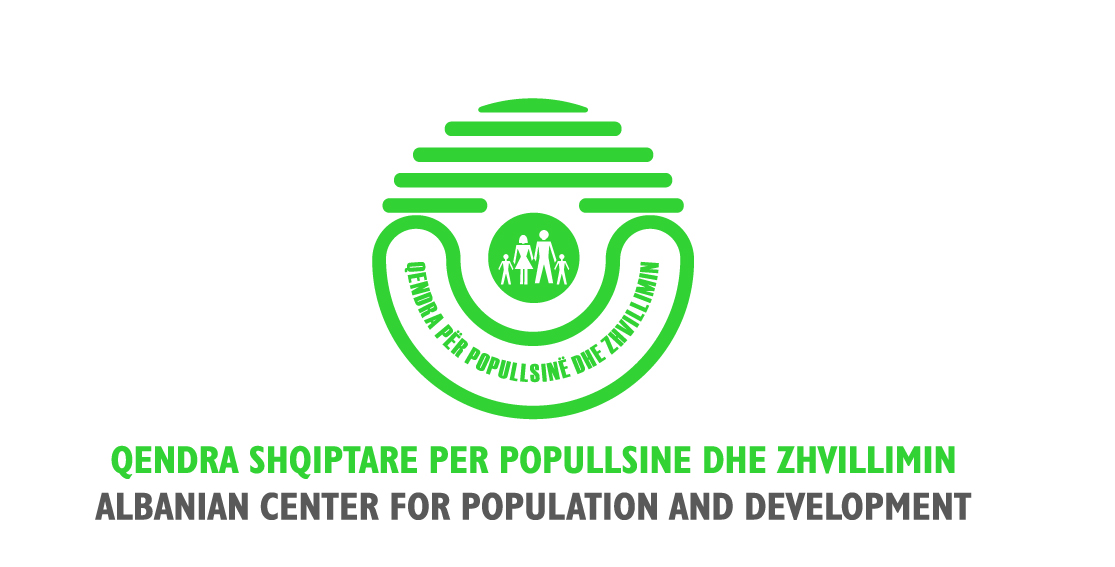

| 31 March 2016
Albanian Center for Population and Development
ACPD is a non-for-profit organization, established in January 1993 that works for improvement of policies, legislation, the right of information and services for issues concerning population and development, including reproductive health. There are four strategic directions of ACPD work: Advocacy on further improvement of SRHR policies, gender equality including women and youth participation in decision making processes at central and local level. Empowerment of women and youth on their SRHR rights through awareness and education, by promoting gender equality and broad society support Qualitative and accessible integrated services, which are gender sensitive and address women and young people needs ACPD maintains the leadership in promoting the broad partnership and cooperation on issues of SRHR through sustainable programmes and increase number of volunteers and supporters. ACPD is led by a board of recognized experts in the field of SRHR, social issues, gender, migration etc. It has a permanent staff around 15 people, who are qualified specialists. The organization has three multi-functional centres located in (Centre of Albania) Tirana, (South) Vlora and (North) Shkodra with 206 active members and activists. The SRH services include contraceptive care, cervical cancer prevention, HIV rapid test and counselling, pre and post abortion care, pre- and post-natal care, ultrasound examination and counselling, gender based violence counselling, sexual transmitted infections counselling, and relationships counselling and referrals. The organization has delivered a very extensive rights-based and gender-sensitive comprehensive sexuality education for children/young people in formal and informal setting. Approximately 1000 teachers and 1500 pupils are trained on CSE all over the country. ACPD and other NGOs have played an important role in advocating for sexuality education. The ACPD also provides a gateway for dialogue, networking and cooperation among stakeholders and partners on regional, national and local levels.

| 31 March 2016
Family Planning Association of Nepal
Established in 1959. the Family Planning Association of Nepal (FPAN) is Nepal's first national family planning service delivery and advocacy organization. It is a major collaborator of the Government of Nepal's national sexual and reproductive health (SRH) program, contributing a greater percentage of all SRH services in Nepal annually. FPAN serves Nepalese people in 44 districts, focusing on the poor, marginalized, socially excluded and underserved (PMSEU) populations, which include female sex workers, people living with HIV (PLHIV), LGBTIQ people, injecting drug users, men who have sex with men (MSM), migrant workers, people with disabilities (PWD), survivors of gender-based violence (GBV), urban slum dweller and people affected by disaster and crisis. The mission of FPAN is to "champion a volunteer movement for increased provision of SRHR to all, particularly to those most at risk, marginalized, and under-served". The planned outcomes set by FPAN for the strategic planning period (2016-2022) include: Nepal Government respects, protects and fulfil sexual and reproductive rights and gender equality; Nepalese people empowered to act freely on their sexual and reproductive health and rights; a high quality integrated sexual and reproductive health services delivered; and a high performing, accountable and strong FPAN. The success of FPAN is due to its extensive and diverse network of service delivery points, as well as its expertly trained staff and volunteers who provide services in areas where they would otherwise be unavailable. FPAN provides an Integrated Package of Essential Services (IPES), which includes sexuality counselling, contraception, including emergency contraception, safe abortion, STIS/RTIs, HIV & AIDS, obstetrics, gynecological and sexual & gender-based violence services. These services are provided across 974 service delivery points (including 270 clinical SDPs, 22 family health clinics, 56 community health clinics, 75 associate clinics, 117 mobile teams, and 794 non-clinical service delivery points). FPAN provides approximately four million SRH services each year across its service delivery points, with family planning accounting for 40%, STIs/RTIs for 14%, gynaecological services for 12%, HIV services for 10%, and other services accounting for the remaining 24%. FPAN has eight clinical training centres that are connected to its family health clinics, which provide full range of family planning and reproductive health services. The training centres are accredited by the National Health Training Centre, (MoHP). These centres provide a variety of family planning and sexual and reproductive health training to health care providers from FPAN, government, and non-governmental organizations (NGO) health facilities.







